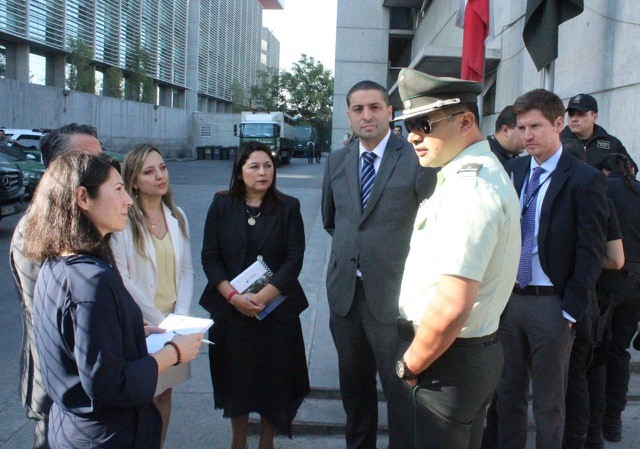EUROsociAL+, through the Democratic Governance policy area, accompanies the Chilean Public Criminal Defender's Office in defining a specialised defence model in the early hours of detention.

The Chilean Public Criminal Defender’s Office has developed a specialised defence model for certain groups of people in a situation of particular vulnerability, which has been recognised at the regional level. This model is aimed at the adoption of affirmative measures and the performance of reasonable adjustments to satisfy the right of access to justice of people accused of crimes, in accordance with the particularities that determine them, in equal conditions to other people in the same condition.
In this regard, specialised defence lines have been developed to provide adequate technical defence to children and adolescents, people from indigenous populations, prisoners and migrants, among others. This is intended to ensure a timely and effective exercise of the defence of accused persons from these groups, through the respect, enjoyment and protection of their rights.
The obligation to provide legal assistance from the early hours of detention is included in Chilean national regulations, both in the Political Constitution of the Republic and in the Criminal Procedure Code, in addition to the International Agreements ratified by Chile.
However, despite this legal recognition of the right to defence from the first actions directed against those accused, difficulties and obstacles remain in Chile for their effective exercise, as has been highlighted in recent months during the numerous arrests in the social uprising and which have been highlighted, among others, by the Office of the High Commissioner for Human Rights and the Inter-American Commission on Human Rights, whose recommendations to the State included the need to “strengthen the Public Criminal Defender’s Office by providing it with full autonomy and expanding its capacity to establish contact with people detained in the early hours of custody”.
In this context, the European Union’s EUROsociAL Programme is accompanying the Public Criminal Defender’s Office in creating and implementing a specialised defence model in the early hours of detention. In this regard, initial technical assistance has been given by the European expert Patricia Goicoechea García, aimed at making a diagnosis of the gaps in guaranteeing the right to legal defence in the first moments of detention for all detainees, at the police station. Subsequently, the model to be implemented at the national level will be defined. The Ministry of Justice and Human Rights, the Ombudsman for Children, NHRI, Police, PDI and the Public Prosecutor’s Office also participate in this action led by the Public Criminal Defender’s Office.
[1] https://eurosocial.eu/biblioteca/doc/protocolo-para-la-defensa-penitenciaria-de-mujeres-condenadas-privadas-de-libertad-en-chile/
[2] https://eurosocial.eu/biblioteca/doc/protocolo-de-defensa-penal-para-personas-migrantes-y-extranjeras/
[3] https://www.ohchr.org/Documents/Countries/CL/Report_Chile_2019_SP.pdf
[4] http://www.oas.org/es/cidh/prensa/comunicados/2020/018.asp



